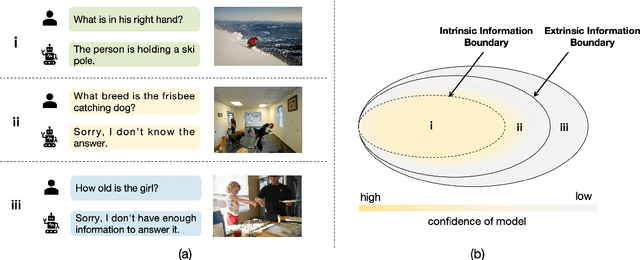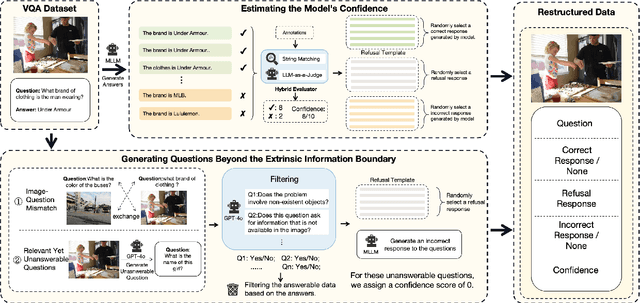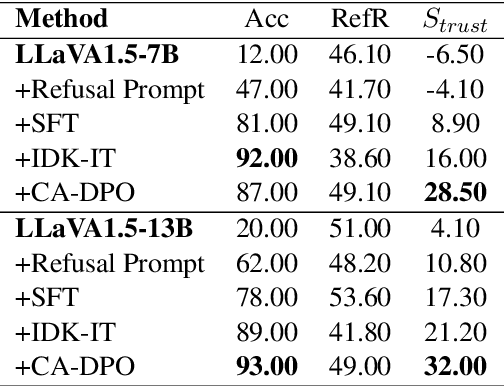Drawing the Line: Enhancing Trustworthiness of MLLMs Through the Power of Refusal
Paper and Code
Dec 15, 2024



Multimodal large language models (MLLMs) excel at multimodal perception and understanding, yet their tendency to generate hallucinated or inaccurate responses undermines their trustworthiness. Existing methods have largely overlooked the importance of refusal responses as a means of enhancing MLLMs reliability. To bridge this gap, we present the Information Boundary-aware Learning Framework (InBoL), a novel approach that empowers MLLMs to refuse to answer user queries when encountering insufficient information. To the best of our knowledge, InBoL is the first framework that systematically defines the conditions under which refusal is appropriate for MLLMs using the concept of information boundaries proposed in our paper. This framework introduces a comprehensive data generation pipeline and tailored training strategies to improve the model's ability to deliver appropriate refusal responses. To evaluate the trustworthiness of MLLMs, we further propose a user-centric alignment goal along with corresponding metrics. Experimental results demonstrate a significant improvement in refusal accuracy without noticeably compromising the model's helpfulness, establishing InBoL as a pivotal advancement in building more trustworthy MLLMs.
 Add to Chrome
Add to Chrome Add to Firefox
Add to Firefox Add to Edge
Add to Edge